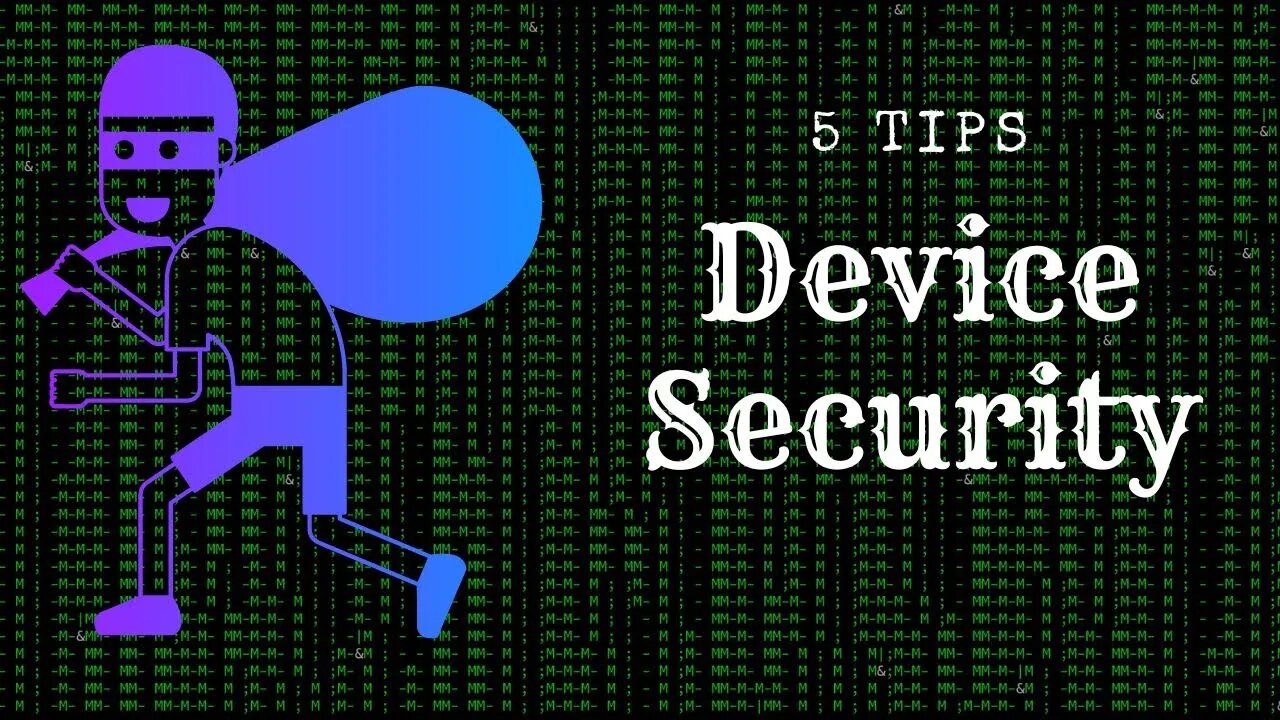Premium Only Content

The ultimate guide to securing your PC: 5 simple strategies
#linux #digitaleconomy #cybersecurity In this video, I'm going to share 5 simple strategies to help you secure your PC. From installing antivirus software to modifying your browser settings, these tips will help protect your data and keep your computer safe from hackers and malware.
If you're worried about your computer security, then watch this video! In it, I'll share with you 5 simple strategies to help you protect your computer from hackers and malware. From installing antivirus software to modifying your browser settings, these tips will help keep your data safe and your computer secure from the dangers of the online world!
• Password security is one of the easiest and most important thing that you can do to secure your machine.
◦ It is commonly recommended that you use a combination of upper and lower case letter with special characters such as @ or !.
◦ You should avoid using dictionary words such as @nsw3rM3!. Although you think this may be a strong password, there are many tools out there that can hack your password using what is called a dictionary attack.
◦ It is also recommended that you use a minimum of 8 characters however, you should use passwords that are longer. Your operating system or online platform may also limit the number of characters you use, so be prepared with shorter and longer passwords.
◦ Depending on your Operating System be sure to store a backup copy of your password in case you forget your password. Do not store it in an email or on your local machine however, I recommend that you use a paper copy and let someone you trust or hide it in a secure place you won’t forget so that digital intruders have to work harder to get your password.
• Make sure to log yourself out of online and local machine accounts each time you leave. This may seem a little convenient however, recently I didn’t do that and someone was able to get into my email just by typing my e-mail providers address.
◦ Although you’re logging out of things each time and logging in each time, you may want to also consider not using the remember my password options. If you log out, but your browser remembers the password you have done yourself no service at all.
◦ Make sure to clear your browser cache, this will remove cookies as well as login tokens that can be read by an experienced hacker.
◦ Don’t forget to clear your cache in your local machine. If you don’t know how to do this you can search how to do this online.
• Choose a browser, not search engine, that collects as little data on you as possible. (https://vpnoverview.com/privacy/anonymous-browsing/best-browsers-for-privacy/#:~:text=Tor%20uses%20a%20decentralized%20network,address%20or%20other%20identifying%20information.)
◦ In the digital age it is profitable for companies to collect user data and then sell it. It seems like nowadays every browser, platform and system wants to harvest your data. What makes this so dangerous is not the data, but the potential intrusions to the vendor or those who they sell it to. The more your data gets passed around the less secure you are, so it’s important to limit the opportunities for your personal data to be compromised.
• Do not store any financial information on your system such as credit and debit cards.
◦ This may seem like something simple that everyone does, but that is not true. The more comfortable you get using your system and the more conveniences you seek the more vulnerable you will be.
◦ Like storing passwords and using browsers that collect your data, storing your financial information on your devices is a huge risk. Considering we’re in the digital age you are just as vulnerable giving your card information over the phone as you are doing it online because you’re trusting the institution to protect your information. You should try to limit transactions done online and over the phone to those who don’t store your financial information although this may be an inconvenience.
• Keep your system up to date, especially Microsoft machines.
◦ Keeping your system up to date is important because some updates fix vulnerabilities in your operating system.
◦ It is the best interest of those who design an operating system to make sure it is as secure as possible, even if security isn’t their primary concern. Some operating systems only patch after a breach has been documented forcing them to fix the vulnerability.
Patreon: https://www.patreon.com/TheHoboPrepper?utm_campaign=creatorshare_creator
Tip Jar: https://www.paypal.com/donate/?hosted_button_id=YBUA9D6XYNTPC
Email- jasonthewise81@yahoo.com
Donate Bitcoin: 1KhnQDhUFgbH8kScwpKFsVK5Uy3Bv1Fsoj
CashApp: $osiriscleaning
My channel on Rumble https://rumble.com/c/c-1679395
Gear and Fundraiser (Affiliate)
Linux for Business - https://amzn.to/3YgHKoI
Linux Gaming and Studio - https://amzn.to/3rTSkWG
Linux Mini PC - https://amzn.to/3OlYxCs
-
 58:10
58:10
The Epoch of Friar Tuck
1 year agoJacksonville to Orlando
62 -
 LIVE
LIVE
Revenge of the Cis
3 hours agoLocals Episode 198: Suits
429 watching -
 1:38:56
1:38:56
SLS - Street League Skateboarding
1 day agoTop Moments from the Second Half of the 2024 SLS Championship Tour! All The 9’s 🔥
25.5K1 -
 24:22
24:22
Breaking Points
6 hours agoHouse GOP RAMS THROUGH Medicaid Cuts
29.2K18 -
 1:24:15
1:24:15
The Quartering
5 hours agoRep. Swalwell's VIRAL Confrontation, Jeff Bezos Op-Ed Announcement, and Canada's Anti-Musk Campaign
94.4K24 -
 1:22:57
1:22:57
Tucker Carlson
8 hours agoNancy Pelosi Stock Tracker Chris Josephs: How to Get Rich by Investing Like a Politician
141K63 -
 2:59:34
2:59:34
Barry Cunningham
8 hours agoWATCH LIVE: DOGE SUBCOMMITTEE HEARING!
76.7K44 -
 1:29:32
1:29:32
Simply Bitcoin
6 hours ago $4.03 earnedNEW REPORT PROVES This Bitcoin Bull Run is DIFFERENT!! | EP 1191
66.7K -
 1:23:50
1:23:50
Russell Brand
7 hours agoAI Visions, War Deals, and the Next Big Lockdown? – SF544
145K20 -
 1:18:31
1:18:31
vivafrei
8 hours agoCanadian Liberal Leadership Race TO THE BOTTOM! Florida Prosecutor Claims SELF DEFENSE? & MORE!
85K43